Redistricting and control of Wisconsin's Legislature in 2024
Close contests for two Wisconsin Assembly districts and one state Senate district in the Green Bay area in the 2024 election reflect political impacts of redistricting the state's legislative maps.
By Zac Schultz | Here & Now
October 17, 2024 • Northeast Region
For the first time in more than a decade, control of the Wisconsin Legislature is actually up for grabs in 2024. Because of a new round of redistricting ordered by the liberal majority on the Wisconsin Supreme Court, voters across the state are learning they actually live in a competitive district.
Nowhere is that more apparent than in the Green Bay area, where there are three 50-50 races with no incumbents.
“Hello! How are you?” Wisconsin Assembly candidate Pat Buckley asked a potential voter while out canvassing.
“I’m running for state Assembly, so wanted to introduce myself,” said Christy Welch to another.
“What’s important to you, if I can ask?” Wisconsin Senate candidate Jim Rafter asked a potential voter.
“Can I give you a flyer?” asked Wisconsin Assembly candidate Ryan Spaude while knocking another door.
“Sure,” replied another potential voter, who asked in turn, ‘Is that you?”
“That’s me,” Spaude replied.
“You got my vote,” said a potential voter in a different exchange.
“Well, thank you,” said Wisconsin Senate candidate Jamie Wall in response.
“All right, good seeing you man, take care” Wisconsin Assembly candidate Ben Franklin said to another upon ending a canvassing conversation.
All across the Green Bay area, candidates for the Legislature are knocking doors, talking to voters and asking for their support. But often the first thing they have to do is explain which district they live in under the new maps.
“I’ve knocked a lot of doors in the last couple of months here, and a lot of people aren’t aware of the changes yet, and a lot of it is just educating them,” Buckley said.
“I would say the majority of folks who’s door I’m knocking on — they’re aware that there’s new maps, they know about it. Do they know what number they’re in? No,” said Spaude.
Buckley, a Republican, and Spaude, a Democrat, are facing off in the new 89th Assembly District.
“My name is Ryan Spaude, I’ll keep it real short and sweet. I’m a candidate for state Assembly,” said the Democratic candidate, who is a prosecutor in the Brown County District Attorney’s office.
Spaude said the new district fits the definition of a fair map.
“So, it’s a nice, compact, contiguous, competitive district,” he said.
Buckley is a retired police officer who sits on the Brown County Board.
“My name is Pat Buckley. I’m running for the 89th Assembly. That’s a new district, created with Ashwaubenon,” he said.
When the incumbent Republican decided not to run in this district, Buckley was recruited to run.
On the County [Board], we’re nonpartisan, or we’re supposed to be nonpartisan, even though we have people that lean left and people that lean right. And as the chair, it’s my job to bring those people together to help get things done,” he said.
Across the Fox River, Republican Ben Franklin is running against Democrat Christy Welch in the new 88th Assembly District.
“Hey sir, Ben Franklin from a couple doors down. How you doing?” the Republican candidate asked a potential voter.
“My name’s Christy, I live in east De Pere and was stopping by today because I’m running for state Assembly this fall,” the Democratic candidate asked another.
Welch is chair of the Democratic Party of Brown County, but only got invested in politics in the last couple of years.
“When Roe v. Wade was overturned, that was not just a tipping point, but a shoving point,” she said.
Franklin is a veteran and small business owner who only moved to Wisconsin in the last couple of years.
“I’m new to politics myself. I’m not a career politician. This is our first go round,” he said.
The 88th and 89th Assembly seats make up two-thirds of the new 30th Wisconsin Senate District, which features Republican Jim Rafter and Democrat Jamie Wall.
“I’m Jim Rafter, I’m the Allouez village president and I’m running for state Senate,” said the candidate while knocking doors on the campaign trail.
“My name’s Jamie Wall, and I’m running for the state Senate around here. Yeah, I actually just live a few blocks up that way,” said the candidate when he was out canvassing.
“I work with people and try to get them together around the table to get the facts and, you know, to solve problems together. And that’s the kind of mindset I’d want to bring to Madison,” explained Wall, who is a business consultant.
“I run a village board of Democrats and Republicans. We’re a nonpartisan board. I’ve done that for 10 years, and all we do is focus on the job. We don’t focus on party,” explained Rafter, who is village president for Allouez.
There’s no guarantee all three races go the same way on Election Day, but there are a number of striking similarities, starting with the fact redistricting made all three districts competitive open seats.
“You could just tell that that old map — it was rigged,” Spaude said. “It ran parts of Brown County that really didn’t have a whole lot to do with each other, and now it’s contiguous, it’s compact.”
The candidates are all hearing similar things at the doors.
“Number one issue would be economics,” said one potential voter.
Economics, meaning inflation, cost of living?” asked Franklin.
“Both,” the voter replied.
“Number one issue, I hear — economy, cost of living,” Rafter said.
Democrats are hearing about costs too, but not just the price of eggs.
“People are concerned about costs and there’s lots of different buckets of costs, but, you know, costs at the grocery store, housing costs, childcare costs,” Welch said.
“Oh boy, child care. Anybody who’s got young kids now, I mean, it’s about like sending your kids to college,” said Wall.
Another topic at the doors is abortion.
“First and foremost, I think it’s been the whole Roe v. Wade,” one potential voter said to Welch.
It’s a topic all three Republicans are looking to avoid.
“The issue of abortion is a tricky one,” said Rafter.
“It’s a very divisive topic. And I think that, you know, it’s not as simple as left and right,” Buckley said.
They all pitched a version of Republican U.S. Sen. Ron Johnson’s idea of a statewide referendum on abortion.
“I would recommend putting it up for a vote — a referendum, so to speak — and then just let the people decide on if they want to put a timeline on that,” Franklin said.
However, Republicans in the Legislature talked about it in the 2023-24 session, and while a bill was passed in the Assembly, the proposal did not proceed in the state Senate.
Democrats feel the issue still resonates with voters across the political spectrum.
“There are, you know, a lot of women and men that are unhappy that that’s what we’re operating under now,” Welch said.
“I think women should have the freedom to make choices and work with their doctor and without their state senator being in the middle of some of these decisions,” said Wall.
Surprisingly, none of the candidates were eager to talk about former President Donald Trump.
“I will certainly vote for Donald Trump. Do I think that his final word is Gospel? No, I don’t. But I think that at the end of the day, we’re all conservatives,” Franklin said.
“Going back to the primary, you know, it wasn’t necessarily my first choice in the primary, but he’s on that part of the ticket. So, we’ll look at the policies. I’d prefer to look at the policies,” said Buckley.
“I’m not getting involved at the federal level in those races. I’m focused on the people of the 30th district,” Rafter said.
But is he voting for Trump?
“Like I said, I will make that decision and I’ll vote for who I vote for,” Rafter said.
For legislative Republicans in a 50-50 district, disavowing Trump completely risks having his supporters skip their race, but coming out as full MAGA risks turning off moderates who don’t like Trump but might vote Republican down-ballot.
“Somehow, I want to get that SOB in jail,” said one potential voter to Franklin.
“Who’s that?” asked the Republican candidate.
“Mr. Trump,” the voter replied.
“Oh,” said Franklin.
In Green Bay, Trump is creating his own kind of swing voter.
“But there’s a lot of people that I’ve talked to, particularly swing voters, like liberals, like conservatives, that they’re not necessarily going to vote a straight ticket. And those are where I get into really meaningful conversations,” Franklin said.
Spaude understands those conversations, as before Trump, he was a Republican.
“There are so many people like me in this district. There’s so many folks. I’ve lost count how many people, ‘I normally vote Republican’ or ‘I consider myself a Republican, but I find myself voting for a lot of Democrats lately.’ It’s like, ‘Yes, like I was there,'” Spaude said.
In the end, 50-50 districts often come down to which candidate outworks the other and makes sure voters are energized to get to the polls.
“It’s going to be won by whoever knocks the most doors, raises the most money, makes the most phone calls, connects with voters,” said Welch.
“I’m feeling excited. My first time running for office — I’m excited, I’m energized. I think there’s going to be a lot of exhausted people, though, by Nov. 5,” said Spaude.
“A lot of people haven’t really thought about it yet and haven’t been putting that much energy into it,” Buckley said. “I just haven’t seen that much energy yet as some of the pundits on TV like to portray.”
“Is there still apathy? There’s still apathy, and there’s still people who say, ‘I’m tired of polarization. I’m not even going to deal with politics,'” said Rafter. “Everyone’s tired of polarization. I’m tired of polarization — big reason why I’m running.”
“It’s crazy when you think about it. I mean, there is no shortage of politics in Brown County,” Wall said. “The downside of living in the epicenter of American politics is you’ve got to deal with a lot of politics, you know, and that’s going to be exhausting for people, I think.”
“It is the battleground of the battleground states,” said Franklin, “meaning that as Green Bay votes, we already know different places around the state that they’re going to vote red or blue, but this will likely decide if Wisconsin goes red or blue.”
Editor’s note: This article is corrected to note that the Wisconsin Assembly passed a bill to call a statewide referendum on abortion policy.
 Passport
Passport




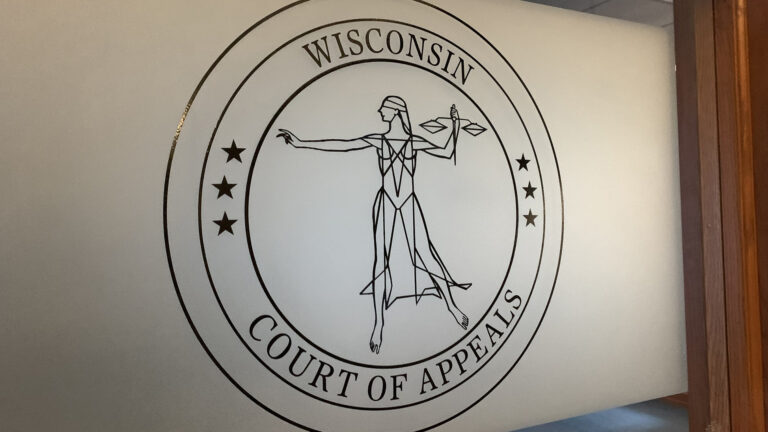
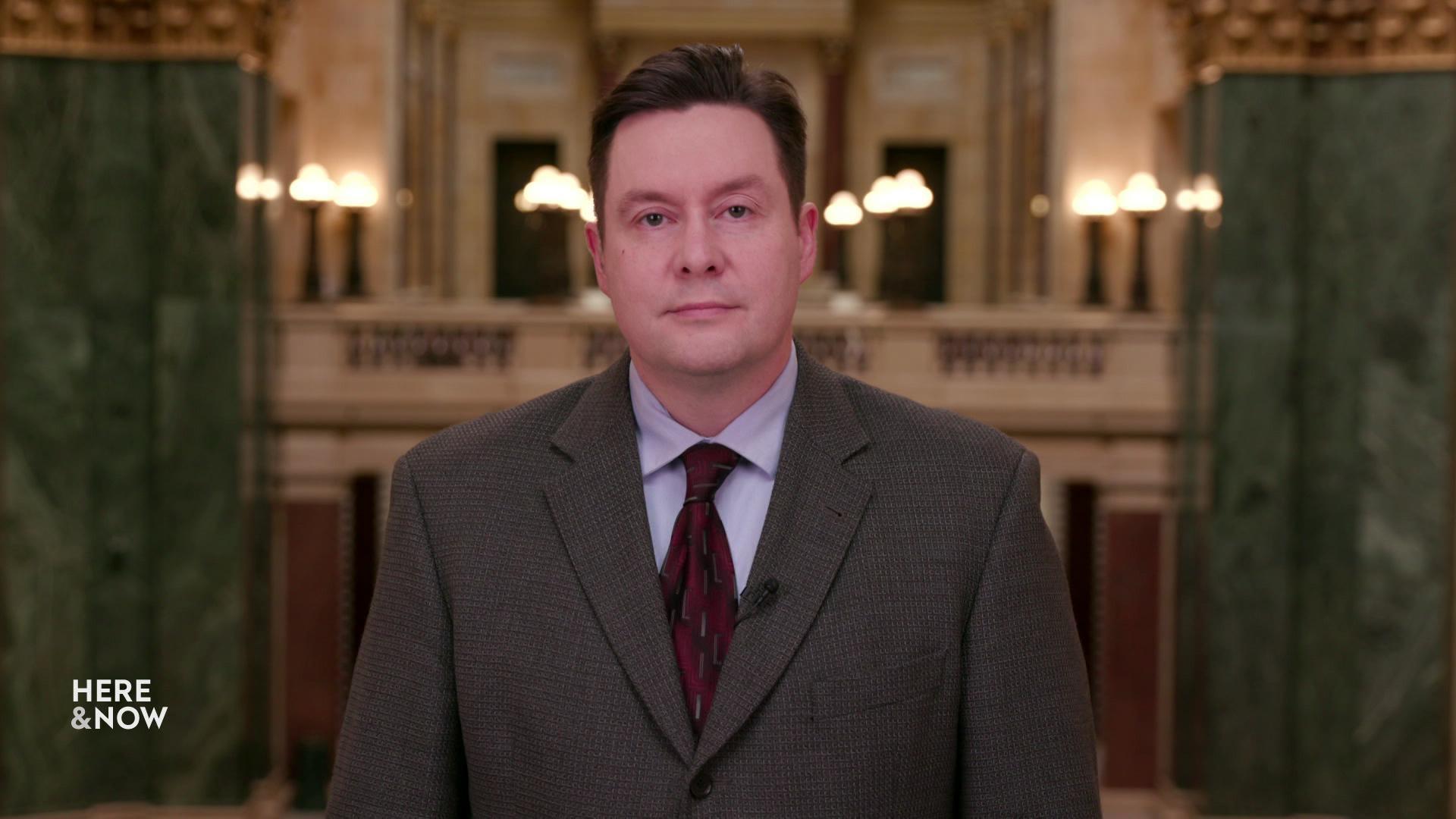
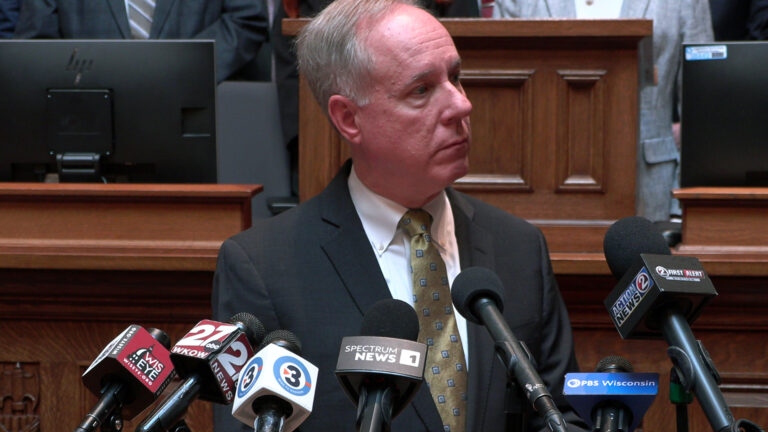

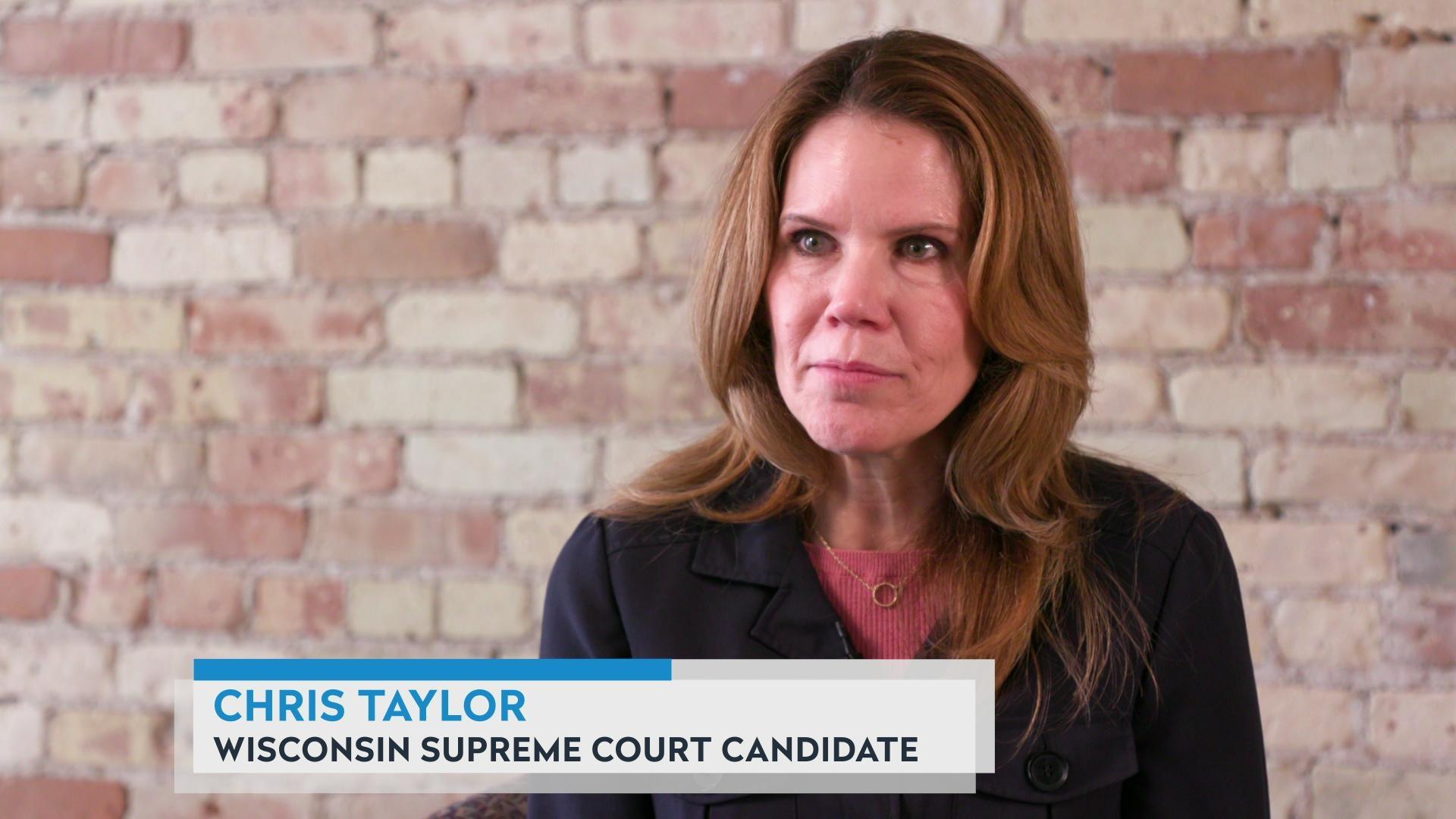
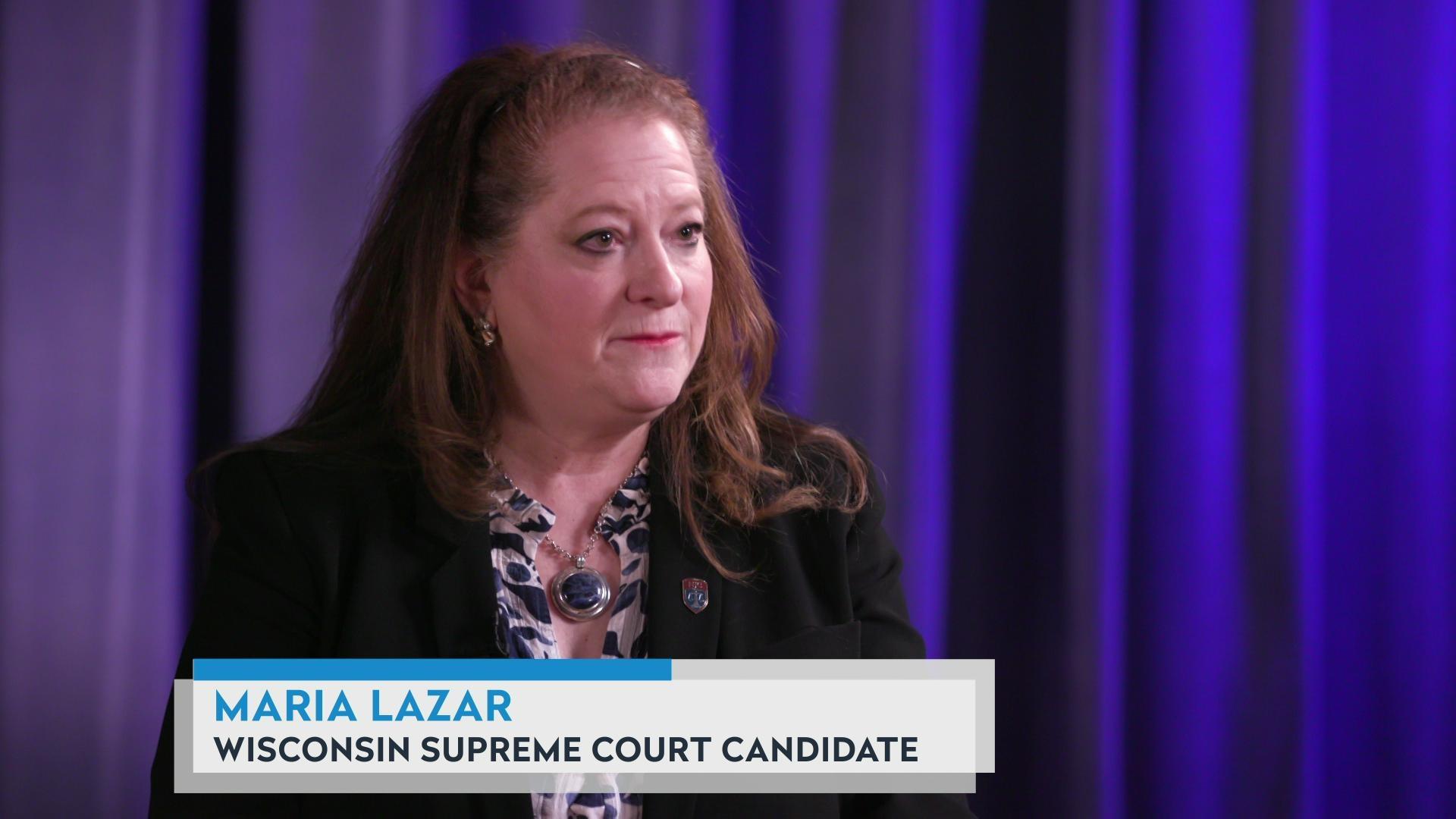

Follow Us